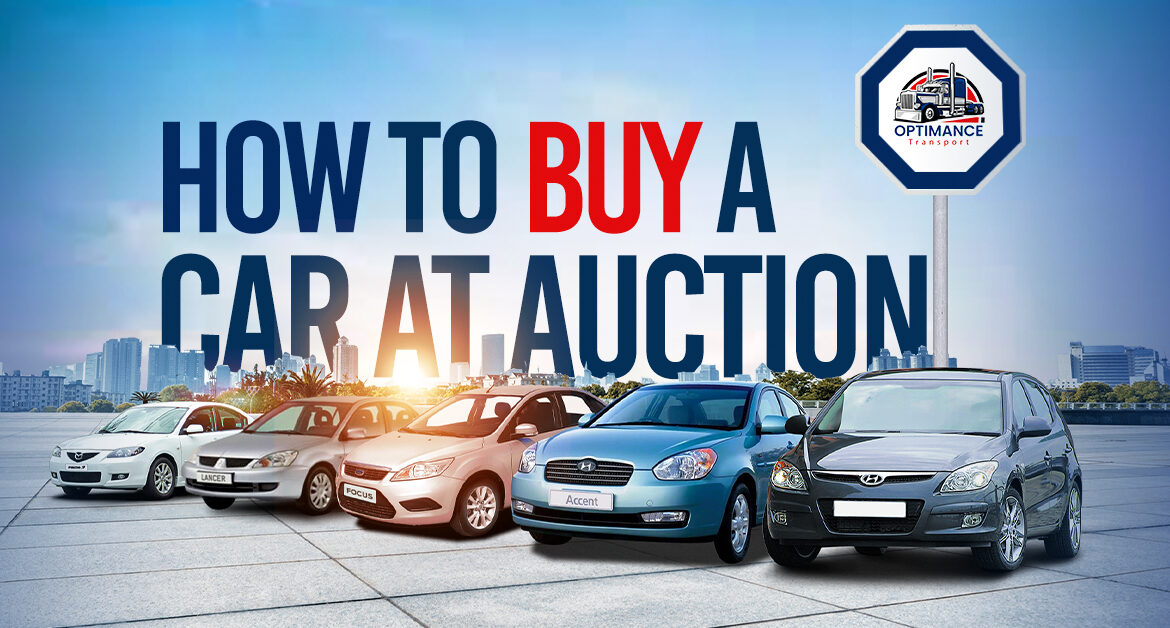
Buying a car can be both an exciting and daunting experience, especially if you’re exploring the world of auction cars. For many, the thrill of the hunt is addictive as the bidding war intensifies, and you get a chance to bring home a vehicle at a fraction of its market price. If you’re new to the car auction scene or just want some tips to improve your chances, this guide is for you!
Before diving into the intricacies of car auctions, it’s essential to understand why so many individuals are drawn to this method of purchasing. Auction cars can range from damaged vehicles to repo cars, classics, or even luxury and exotic models. The primary appeal? The opportunity to snag a car at a significantly lower price than its actual market value.
Research is key before you even set foot in an auction or start browsing online listings.
Knowing what you want beforehand will prevent impulse buys, whether you’re eyeing an antique classic or seeking exotic car transport options.
Most auctions provide a vehicle’s VIN, allowing you to conduct a thorough background check. This will inform you of any accidents, ownership history, or potential liens.
Auction cars often come “as is.” This means there’s limited or no warranty, so inspecting the car before placing a bid is crucial. While some auctions offer preview days for potential bidders to examine the vehicles, always consider bringing a trusted mechanic to ensure there are no hidden issues.
Every auction house will have fees, and these can quickly add up. Make sure you’re aware of any buyer’s premiums or additional costs. Factor these into your maximum bid to ensure you stay within your budget.
Before you get into the thick of things, attend a few auctions without the intention to bid. This will help you familiarize yourself with the process, pace, and strategies seasoned bidders employ.
It’s easy to get carried away in the heat of the moment. Setting a budget in advance can prevent overspending and potential regrets.
The journey isn’t over once you’ve successfully bought an auction car.
If your newly acquired vehicle isn’t in drivable condition or an exotic model requiring special care, consider exotic car transport services. These professionals are adept at safely transporting high-end vehicles.
Not all auction cars will be located near you. If you’re purchasing a car from another state or region, you’ll need to explore shipping car cross-country. Companies specializing in Snowbird Auto Transport are often experienced in handling such long-distance shipments.
Finding the best car shipping company can be overwhelming with so many options available. Look for companies with stellar reviews, experience, and appropriate insurance coverage, like Optimance Transport. Some even offer door-to-door auto transport for added convenience.
Laws regarding auction cars vary by state. Familiarize yourself with your state’s lemon laws and your rights when purchasing a vehicle without a warranty.
Buying a car at an auction can be an exciting experience and often presents an opportunity to get a vehicle at a lower cost. However, there are several disadvantages to consider:
Purchasing cars at auctions requires a mix of preparation, research, and understanding the specifics of auction procedures. Here’s a comprehensive list of what you’ll need:
Before you can bid at many auctions, you’ll need to register. This typically involves filling out a form, providing identification, and occasionally paying a fee. You’ll need a dealer’s license for dealer-only auctions, although some services can bid on your behalf if you don’t have one.
Ensure you have cash or a cash equivalent, as some auctions demand cash payments. If you’re eyeing more expensive vehicles, be prepared to show proof of funds. Should you wish to finance your purchase, have arrangements made in advance, as not all financial institutions finance auctioned vehicles. Sometimes, a deposit is required to place a bid.
Equip yourself with access to vehicle history report services like CarFax using the vehicle’s VIN. It’s also useful to have price guides, such as Kelley Blue Book or NADA Guides, on hand to help assess the market value of cars and ensure you don’t overbid.
If the auction permits, carry out pre-bidding inspections. Bring along a trusted mechanic or a thorough inspection checklist to evaluate the car’s condition.
After a successful bid, you’ll need a plan to get the car to its new home. Consider local towing services or car transport companies if the vehicle isn’t drivable or the auction is a considerable distance away. If the car is operational and you have insurance lined up, you can drive it home.
Every auction has its set of rules and procedures. Understand the nuances of bidding, be aware of any associated fees, and get clarity on payment terms before diving in.
If you’re considering driving the vehicle after the auction, arrange for insurance beforehand. Most auctions will require proof of insurance if you’re driving the car off the lot.
Lastly, approach the auction with a well-defined budget and a list of cars you’re interested in. The auction environment can be electrifying, so a clear plan will help you avoid impulsive decisions.
Entering the world of auction cars can be both rewarding and challenging. However, with adequate research, a well-planned strategy, and an understanding of the post-purchase requirements like shipping and transport, you can make the process smoother and more enjoyable. Whether you’re looking for a fixer-upper or an exotic beauty that requires special transport, car auctions can be the perfect place to find your dream vehicle.
© 2023 Optimance Transport. All rights reserved